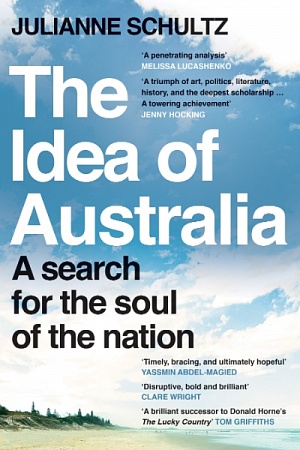Memory is Another Country: Women of the Vietnamese diaspora
Praeger, $39.95 hb, 212 pp
Tapestry of trauma
This is a poignant and beautifully presented work about a community most Australians have lived alongside for decades without enquiring about the lives of its members. Reading it should jolt us out of our complacency.
Memory Is Another Country: Women of the Vietnamese Diaspora is the product of a project financed by the Australian Research Council and undertaken by Nathalie Huynh Chau Nguyen, herself a refugee. Between 2005 and 2008 she and two co-workers (Boitran Huynh-Beattie and Thao Ha) recorded confidential oral testimony from forty-two Vietnamese women living in Australia, who are referred to only by their first names. They come from a range of different backgrounds, in terms of age, class and district, but all of them fled war and political upheaval before prolonged and painful transitions to Australia. Their narratives cover generations of war and its aftermath, from the French and Japanese occupations to American intervention and the 1975 fall of Saigon, and life in re-education camps thereafter. Many of the women made multiple escape attempts before reaching Australia – fourteen, in one case.
The role of memory has long been accepted as central to the healing of trauma. Nguyen’s meticulous presentation of these mostly sad and sometimes shocking personal histories shows us this process at work. Memory is the tapestry on which the traumatised re-work their lives through countless narratives of explanation and adjustment, reconstructing identities threatened with fragmentation by imprisonment, torture, horrors witnessed, and ordeals endured.
For the trauma survivor, the re-shaping of identity is often related to the destruction of family or childhood records. Nguyen notes: ‘Many South Vietnamese households destroyed family photographs and documents in the closing days of the war – a loss that was irretrievable.’ Her first chapter, entitled ‘Lost Photographs’, underlines the centrality of lost images to refugees and their eventual reworking into each person’s narrative. She quotes American-Vietnamese writer Andrew Lam, who is haunted by the memory of destroying photographs in Saigon on his mother’s orders, and who has since worked to recover the images in other forms. ‘Precious things lost are transmutable,’ he wrote. ‘They refuse oblivion. They simply wait to be rendered into testimonies, into stories and songs.’
Continue reading for only $10 per month. Subscribe and gain full access to Australian Book Review. Already a subscriber? Sign in. If you need assistance, feel free to contact us.















Leave a comment
If you are an ABR subscriber, you will need to sign in to post a comment.
If you have forgotten your sign in details, or if you receive an error message when trying to submit your comment, please email your comment (and the name of the article to which it relates) to ABR Comments. We will review your comment and, subject to approval, we will post it under your name.
Please note that all comments must be approved by ABR and comply with our Terms & Conditions.